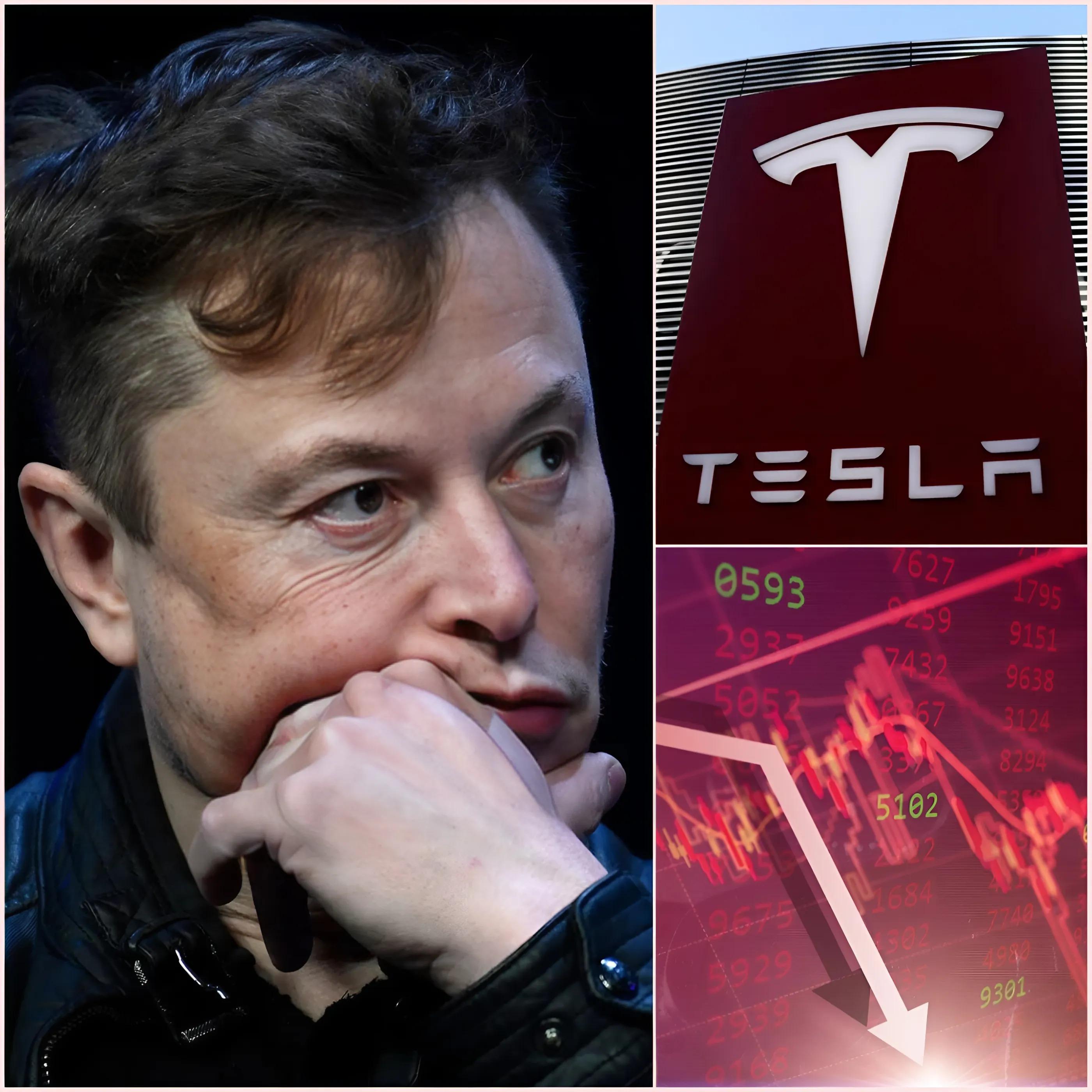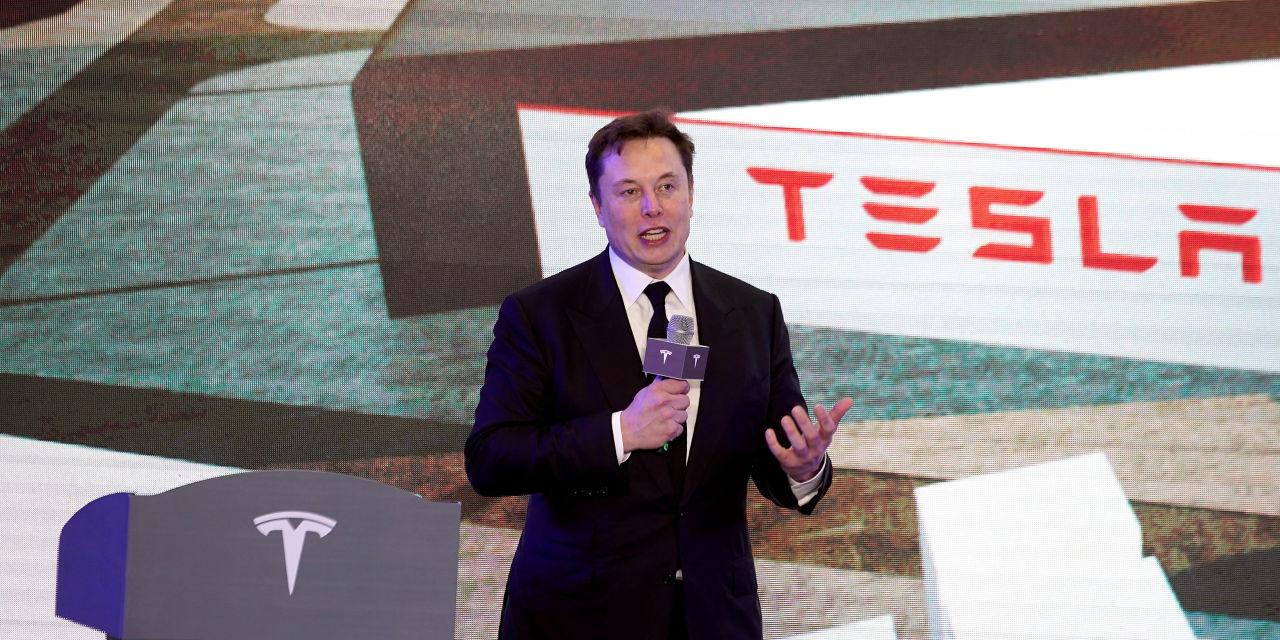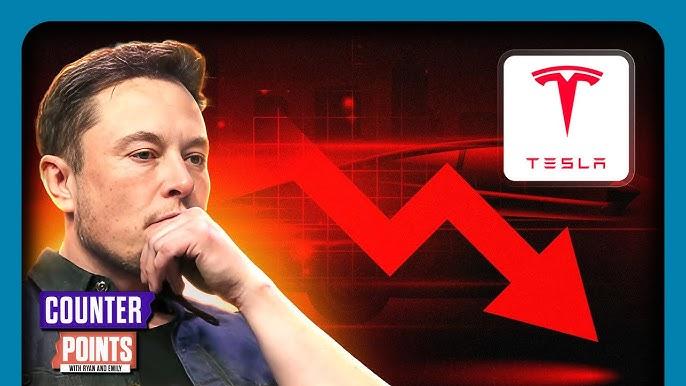🔥 News: Why did Elon Musk fail with Tesla? These are the reasons why Tesla failed in the market, which even Elon Musk had to admit
News: Why did Elon Musk fail with Tesla? These are the reasons why Tesla failed in the market, which even Elon Musk had to admit.

In recent years, Tesla has been synonymous with innovation, electric vehicles, and the flamboyant personality of its CEO, Elon Musk. However, in May 2025, the company faces unprecedented challenges that have led to a sharp decline in its market dominance. Once hailed as a pioneer of the electric vehicle (EV) revolution, Tesla now faces a perfect storm of internal mistakes, external pressures, and reputational damage, many of which Musk himself has acknowledged. This article explores the reasons behind Tesla’s downfall and why not even Musk’s relentless optimism could protect the company from its current troubles.
Tesla’s financial woes have been at the forefront of its struggles. The company reported a staggering 71% drop in net income in the first quarter of 2025, along with declining sales, despite the growing electric vehicle market. This was a stark contrast to Tesla’s previous years, when it consistently outperformed competitors. Analysts point to several factors, including rising costs due to tariffs imposed during the Trump administration, which squeezed Tesla’s profit margins. Furthermore, the company’s shift away from developing an affordable electric vehicle platform—a shift Musk once touted as crucial to Tesla’s mass-market appeal—has left it struggling to compete with cheaper alternatives from rivals like BYD and new entrants like Slate. The scrapping of the $25,000 vehicle, which Musk had touted for years, disappointed consumers and ceded ground to competitors offering more affordable options.

Musk’s strategic decisions have also come under scrutiny. His intense focus on futuristic projects like Robotaxis and humanoid robots has diverted resources from Tesla’s core business, manufacturing electric vehicles. While Musk remains optimistic about the potential of autonomous driving, analysts like Gene Munster of Deepwater Asset Management have noted that Tesla’s finances are suffering in the short term. The long-awaited CyberTruck, for example, has failed to gain traction, with images of unsold vehicles piling up in parking lots circulating widely. This misallocation of resources has left Tesla unprepared to meet immediate market demands, further eroding its competitive advantage.
Beyond internal challenges, Musk’s polarizing public image has significantly impacted the Tesla brand. His involvement with the Trump administration’s Department of Government Efficiency (DOGE) and his outspoken support for controversial political figures, including Germany’s far-right AfD party, have alienated a significant portion of Tesla’s customer base. Protests outside Tesla stores and vandalism of its vehicles have become increasingly common, particularly in Europe, where sales plummeted 59% in France and 67% in Denmark in April 2025. Some Tesla owners have even placed stickers on their cars proclaiming, “Me before Elon was crazy,” to distance themselves from Musk’s actions. This reaction, often referred to as the “Elon Musk effect,” has led to a sharp decline in Tesla’s resale value, with used car dealers in markets like Quebec reporting an oversupply of Teslas selling for half their 2024 prices.
Musk’s divided attention has also raised concerns among investors. His simultaneous leadership of Tesla, SpaceX, Neuralink, The Boring Company, and Xai, combined with his political commitments, has put him under pressure. Musk himself admitted in a March 2025 Fox News interview that he was managing his businesses “with great difficulty.” This sparked speculation about his possible departure as Tesla CEO, with reports in early May 2025 suggesting that the board had contacted executive search firms to find a replacement. Although Tesla CEO Robyn Denholm and Musk vehemently denied these allegations, the mere rumor caused a significant drop in Tesla’s stock price, underscoring the market’s dependence on Musk’s leadership.

Despite these setbacks, Musk remains defiant, insisting that Tesla has weathered the worst storms and will bounce back. He pointed to the company’s long-term potential in AI and autonomous driving as a path to recovery. However, with Tesla’s shares down 33% since January 2025 and Musk’s personal net worth at $113 billion, the road ahead looks bleak. The company faces mounting legal challenges, including lawsuits over misleading claims about its Autopilot feature and accusations of a toxic work environment, further complicating its recovery efforts.
In short, Tesla’s decline is the result of a combination of strategic missteps, financial pressures, and polarizing actions by Musk. While Musk’s vision has propelled Tesla to remarkable heights in the past, his inability to address these challenges has left the company vulnerable. Tesla’s recovery will depend on its ability to focus on its core business and repair its tarnished brand—an uphill battle that even Musk has acknowledged is far from won.






